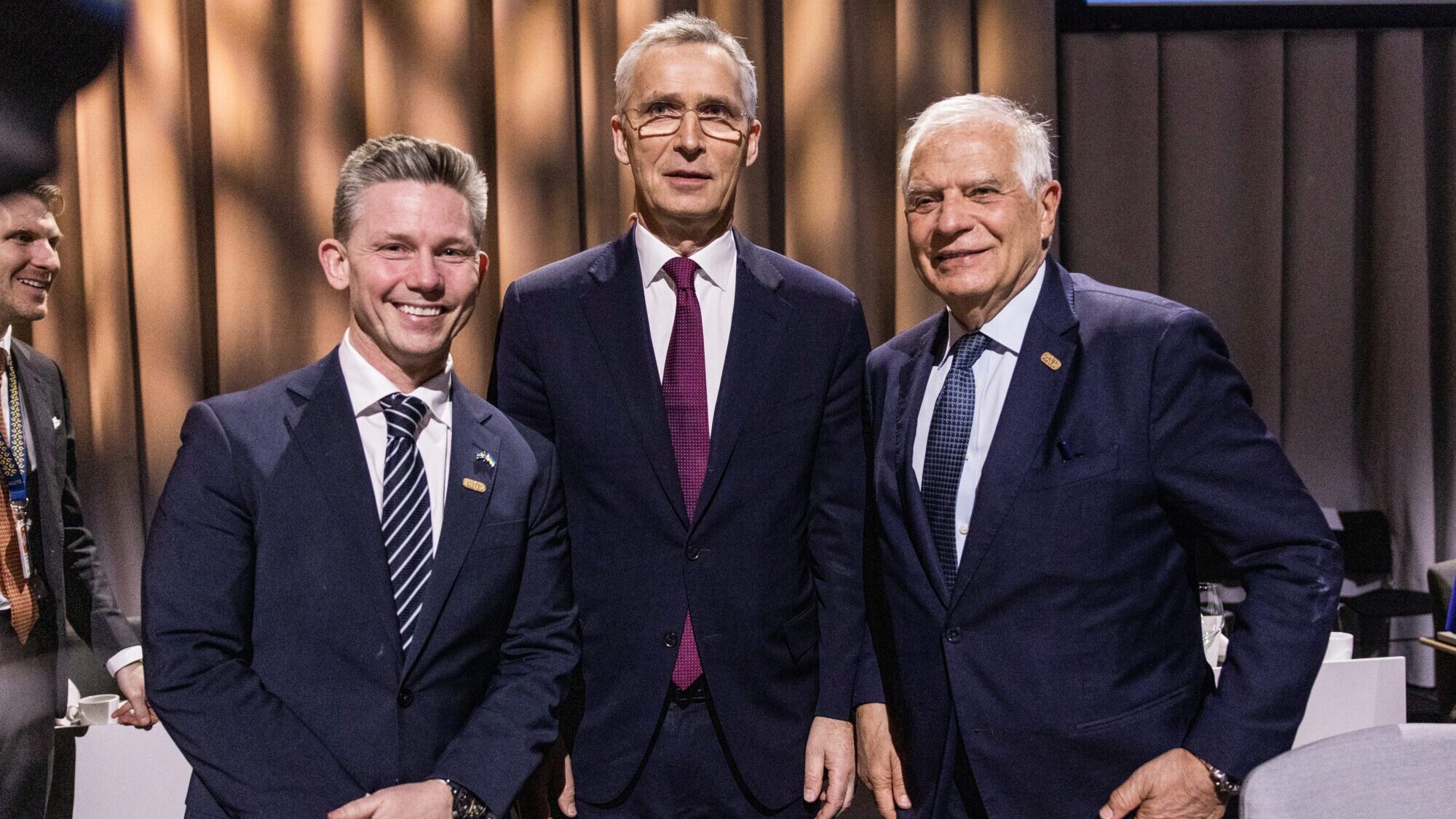
From left to right: Pål Jonson, minister for defence of Sweden; Jens Stoltenberg, secretary-general of NATO; Josep Borrell, high representative of the EU for foreign affairs and security policy (Stockholm, March 8th)
Photo: European Union
Ammunition production must be ramped up to supply Ukraine and to replenish EU stockpiles, the bloc’s defense ministers agreed at the meeting held in Stockholm on Wednesday, March 8th. Joint arms procurement initiatives are to be sped up to meet the “enormous demand.”
“The next weeks will be critical,” EU Foreign Affairs chief Josep Borrell said at the press conference after the meeting, organized by the Council’s Swedish presidency. Time is of the essence now, that is why the high representative announced a €1 billion support package to “immediately reimburse” allies for their ammunition shipments to Ukraine, financed by the European Peace Facility (EPF), the EU’s off-budget funding mechanism for actions with military and defense implications.
Moreover, to support the joint ammunition procurement program to be set up under the coordination of the European Defense Agency, Borrell announced another €1 billion to be allocated from the EPF, planned to take over parts of the production and delivery costs.
However, the most crucial element of the plan is ramping up long-term production capabilities across the board to be able to meet future demands, Borrell said. “We are in war times, and we have to have a war mentality.”
NATO Secretary-General Jens Stoltenberg, who was also present, explained the seriousness of the current situation. “This is now a war of attrition, a battle of logistics. This is about getting the supplies, the ammunition, the fuel to the frontlines,” he said after arriving at the meeting. “The current rate of consumption compared to the current rate of production of ammunition is not sustainable.”
Nonetheless, Borrell was more optimistic when he stressed that the EU institutions were ready to provide the logistical framework. “I presented a proposal that the minister will discuss,” Borrell said ahead of the meeting. According to him, the proposal put forward by the European Defense Agency and the European Commission has three pillars: to use existing stockpiles to provide ammunition quickly; to join efforts in a common procurement program to be able to continue supplying Ukraine during the war; and to significantly ramp up the defense production capabilities of NATO allies in the long-term.
However, Europe’s existing ammunition stockpiles are quickly running out, Stoltenberg warned. “So far, our support to Ukraine has mainly come from depleting the NATO stocks,” he said. “We need to ensure that Ukraine gets the ammunition it needs and we need to replenish our own stocks.” Several NATO allies already signed contracts that enable increased production, he added, but more cooperation is needed.
The Council is expected to agree on the whole package deal on March 20th; more details on the financing of the procurement scheme will be published after that date.
